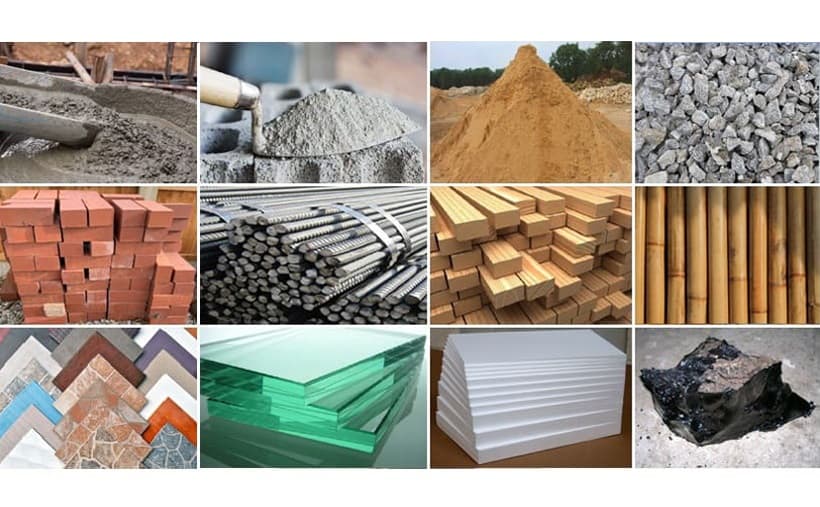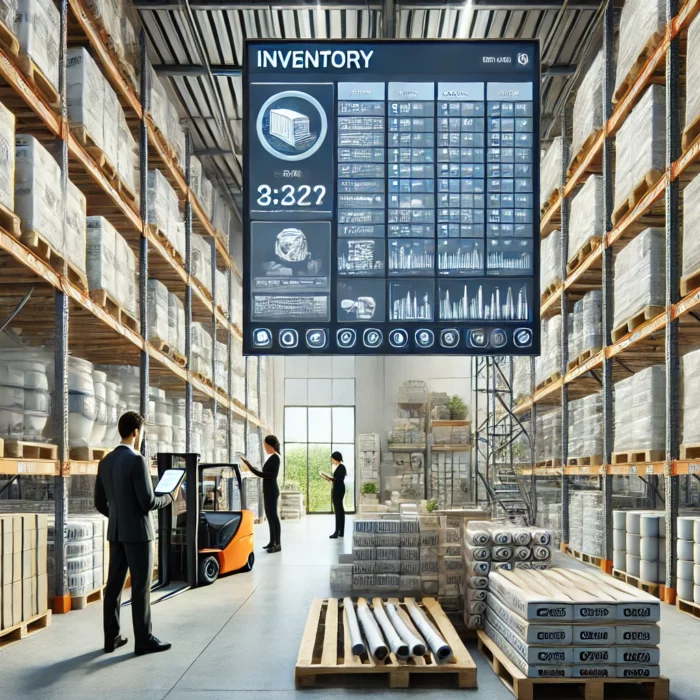
Is Building Materials Business Profitable in Nigeria? If you’re wondering whether starting a building materials business is worth your time and investment in 2024, you’re asking the right question!
I’ve spent close to a decade in this industry, and I can tell you it’s an exciting time to be in this space.
According to the World Metrics 2024 Global Construction Industry Report, the construction materials market is projected to reach a staggering $1.1 trillion by 2026!
I remember my first visit to the bustling Oshodi Market in Lagos, watching traders move countless bags of cement and bundles of iron rods.
The energy was electric! That experience showed me firsthand the massive potential of this industry, especially in growing markets like Nigeria.
In this guide, I’ll break down everything you need to know about the profitability of a building materials business.
We’ll look at real numbers, practical strategies, and honest insights about both the opportunities and challenges you’ll face.
Understanding the Building Materials Business Model
Let me tell you something interesting – not all building materials businesses are created equal! From my experience working with various entrepreneurs, I’ve seen three main approaches succeed:
Types of Building Materials Businesses
The building materials industry offers several business models, each with its own profit potential:
1. Retail Operations
- Average profit margins: 15-25%
- Lower initial investment
- Direct customer interaction
- Faster inventory turnover
2. Wholesale Business
- Profit margins: 10-15%
- Higher volume sales
- Requires larger storage space
- Better bulk purchase discounts
3. Manufacturing
- Highest potential margins (30-40%)
- Requires significant capital
- More complex operations
- Greater control over quality
I started my journey from arbitrage before expanding to wholesale, and let me tell you – each model has its sweet spot!
Common Products and Their Profit Margins
Based on my market analysis and personal experience, here are the most profitable building materials:
| Product | Average Profit Margin |
| Cement | 8-12% |
| Steel/Iron Rods | 15-20% |
| Tiles | 25-35% |
| Paints | 30-40% |
| Electrical Materials | 35-45% |
Profitability Analysis: Numbers That Matter
Let’s talk real numbers! When I first started, I wished someone had given me this breakdown:
Startup Costs (Average for a Medium-sized Retail Operation)
- Shop rent/lease: $5,000 – $15,000 annually
- Initial inventory: $20,000 – $50,000
- Storage facilities: $3,000 – $8,000
- Staff salaries (3-4 people): $400-$600 per person monthly
- Licenses and permits: $500 – $1,500
- Working capital: $10,000 – $20,000
Operating Expenses
Monthly expenses typically include:
- Inventory replenishment: 60-70% of revenue
- Staff salaries: 10-15% of revenue
- Utilities and maintenance: 5-7% of revenue
- Marketing and promotions: 3-5% of revenue
- Transportation and logistics: 5-8% of revenue
I learned the hard way that you need to maintain at least 3 months of operating expenses as a safety net!
Key Success Factors In The Building Materials Industry
After seeing numerous businesses succeed and fail, here are the critical factors that make the difference:
Location Strategy
The right location can make or break your business. Look for:
- Proximity to construction sites
- Easy access for loading/unloading
- Visible storefront
- Adequate parking space
- Growing neighborhoods
Inventory Management
This is where I see most newcomers struggle! Here’s what works:
- Use inventory management software
- Maintain optimal stock levels
- Track fast-moving items
- Implement JIT (Just-In-Time) delivery for bulky items
- Regular stock audits
Supplier Relationships
Building strong supplier relationships has saved my business thousands of dollars! Focus on:
- Multiple supplier networks
- Bulk purchase agreements
- Payment terms negotiation
- Quality assurance partnerships
- Regular market price checks
Real-World Success Stories
Let me share some inspiring stories that prove the potential of this business. I’ll never forget meeting Mr. Adebayo in Abuja, who started with a small shop selling just cement and blocks.
Success Story 1: From Small Shop to Major Distributor
Mr. Adebayo’s journey is remarkable:
- Started with ₦500,000 ($650) in 2019
- Focused on cement only initially
- Reinvested 70% of profits for 2 years
- Now generates ₦5,000,000+ ($6,500+) monthly
- Operates 3 locations across Abuja
Success Story 2: Innovation in Traditional Business
A building materials business in Port Harcourt revolutionized their approach:
- Introduced digital inventory management
- Started home delivery services
- Created a WhatsApp ordering system
- Achieved 300% growth in 3 years
- Maintains 25% profit margin consistently
Key Lessons From These Success Stories:
- Start small but plan big
- Reinvest profits consistently
- Embrace technology
- Build strong customer relationships
- Diversify product range gradually
Challenges And Risk Factors
Let me be honest – I’ve hit quite a few roadblocks in my journey. Here are the real challenges you’ll face:
Market Volatility
- Price fluctuations (especially in cement and steel)
- Currency exchange rate impacts
- Seasonal demand changes
- Supply chain disruptions
I once lost ₦2,000,000 due to sudden price changes in cement! Here’s how to protect yourself:
- Keep emergency funds
- Maintain flexible pricing strategies
- Build strong supplier networks
- Use forward contracts when possible
Storage and Logistics Issues
Storage challenges include:
- Weather damage risks
- Theft and security concerns
- Space optimization needs
- Inventory tracking difficulties
Smart solutions I’ve implemented:
- Installed CCTV systems
- Used waterproof covering materials
- Implemented security protocols
- Created organized storage zones
Current Market Trends And Opportunities
The building materials industry is evolving rapidly. Here’s what’s working in 2024:
Sustainable Materials Trend
Growing demand for:
- Eco-friendly blocks
- Solar-powered materials
- Recycled construction materials
- Energy-efficient products
Digital Transformation
Technology adoption is crucial:
- Online ordering systems
- Digital payment solutions
- Inventory management software
- Social media marketing
Market Gaps in Nigeria
Untapped opportunities include:
- Sustainable building materials
- Specialized finishing materials
- Professional installation services
- Construction consulting
How To Maximize Profitability
After years in this business, here are my proven strategies for increasing profits:
Inventory Optimization
- Keep fast-moving items well-stocked
- Monitor slow-moving products
- Use data to predict demand
- Maintain relationships with multiple suppliers
Marketing Strategies That Work
1. WhatsApp Business Account
- Share product catalogs
- Send price updates
- Offer instant quotes
- Provide delivery updates
2. Local Contractor Networks
- Build relationships with builders
- Offer bulk discounts
- Provide credit to trusted clients
- Organize product demonstrations
Cost Control Measures
My top tips for managing costs:
- Negotiate bulk purchase discounts
- Optimize delivery routes
- Reduce waste and damage
- Control utility costs
- Monitor staff productivity
FAQs About Building Materials Business Profitability
Q: What’s the minimum capital required to start?
A: For a small retail operation in Nigeria, you need at least ₦2,000,000 – ₦3,000,000 ($2,600-$3,900). This covers basic inventory, shop rent, and working capital.
Q: How long until I can expect to be profitable?
A: With good management, most businesses break even within 6-12 months. However, significant profitability usually takes 18-24 months.
Q: Which products have the highest margins?
A: Finishing materials like tiles, paints, and electrical fittings offer margins of 30-45%. However, they also require higher initial investment and proper storage.
Q: How can I compete with established businesses?
A: Focus on:
- Superior customer service
- Reliable delivery
- Quality products
- Competitive Pricing
- Niche market segments
Q: What are the best locations for a building material shop?
A: Look for areas with:
- Ongoing construction projects
- Good road access
- Growing populations
- Limited competition
- Reasonable rent costs
Conclusion
Is a building materials business profitable? Yes, absolutely – but success requires careful planning and execution. From my experience, the key to profitability lies in:
- Starting with adequate capital
- Understanding your market
- Managing inventory effectively
- Building strong relationships
- Adapting to market changes
Remember, the construction industry in Nigeria and globally continues to grow. With the right approach, you can build a highly profitable business in this sector.
Ready to start your building materials business journey? Begin with market research in your local area and connect with existing players to learn from their experiences.
Author’s Note: All financial figures are approximations and may vary based on location, market conditions, and business scale. Always conduct thorough market research specific to your area before making investment decisions.

